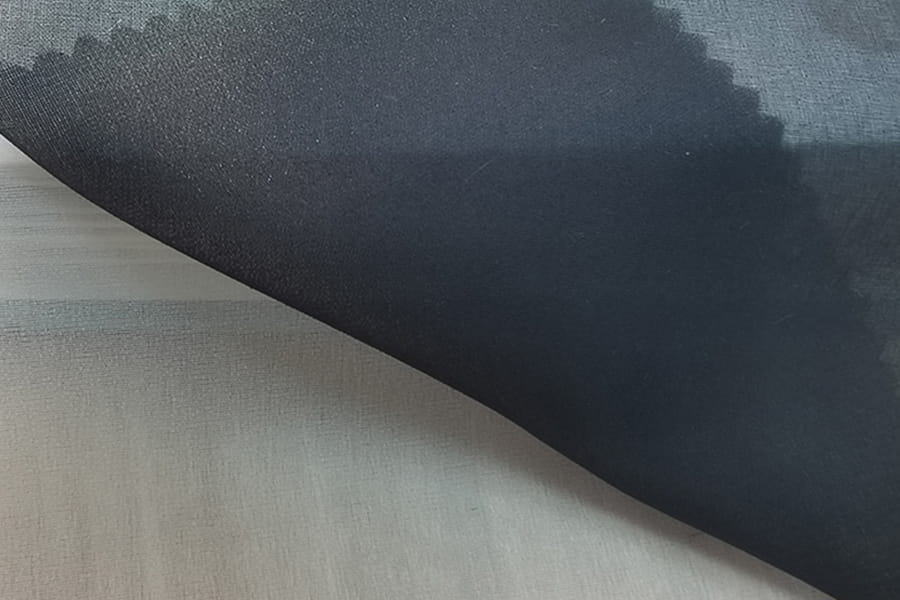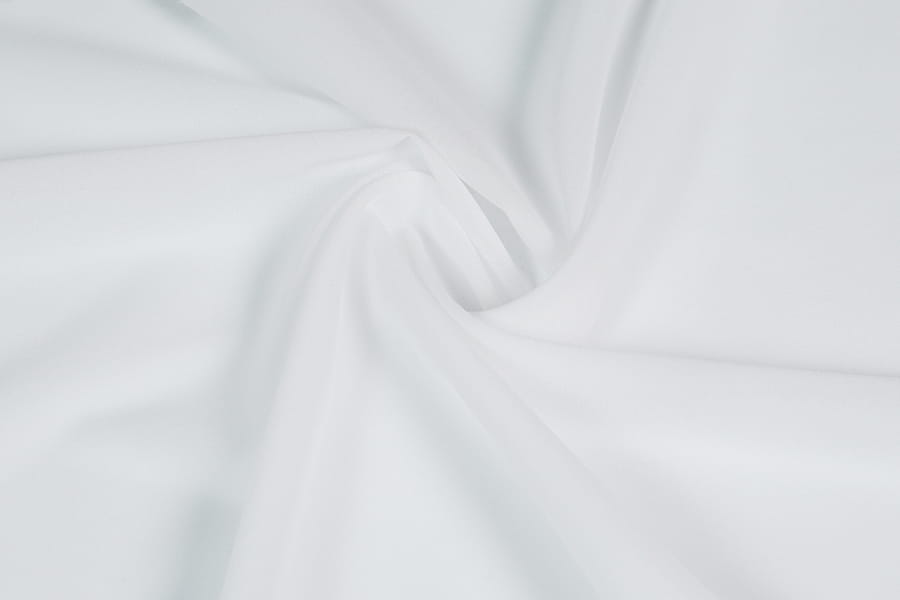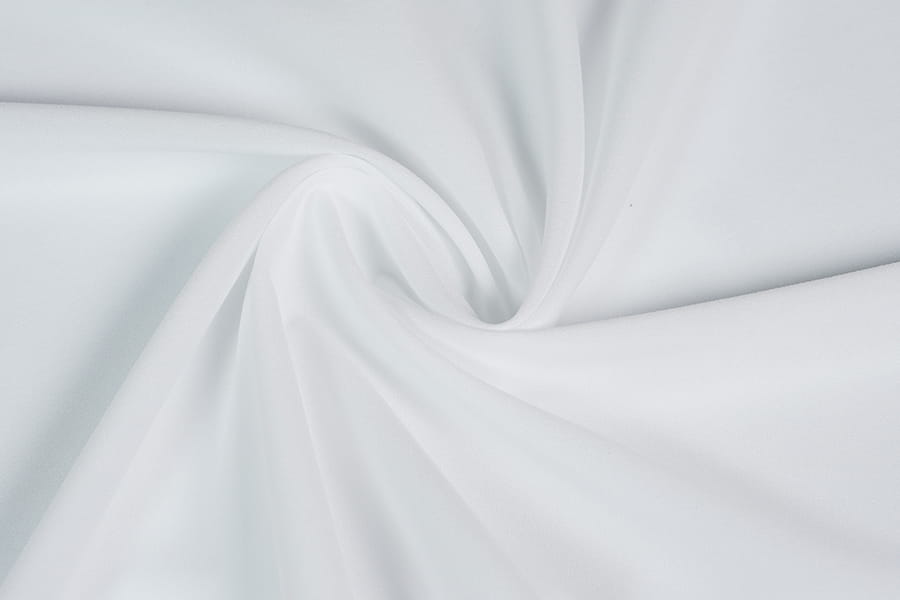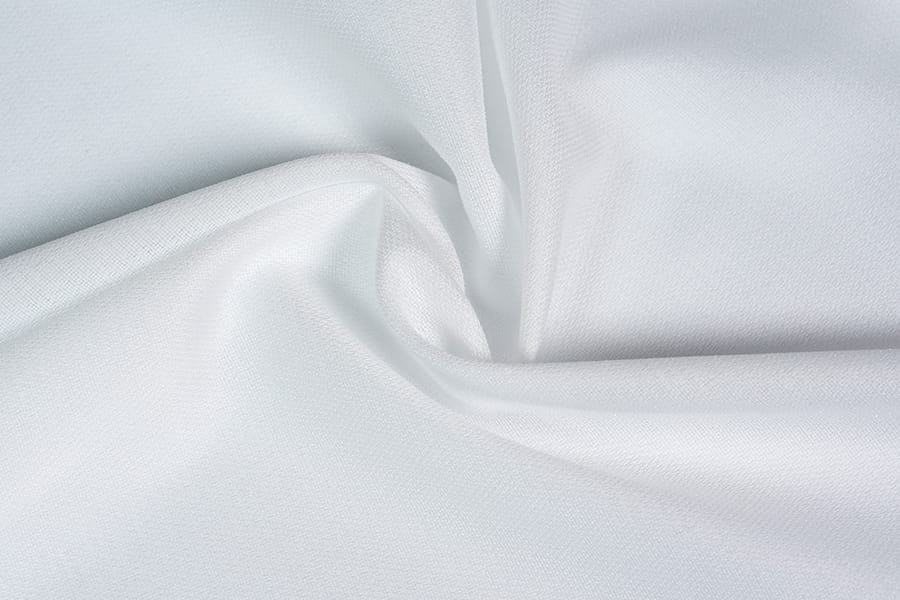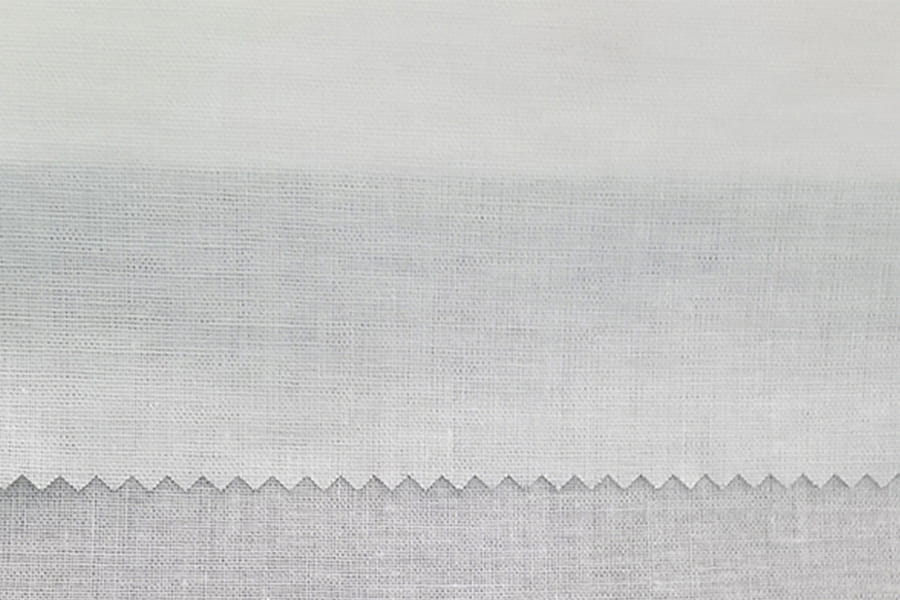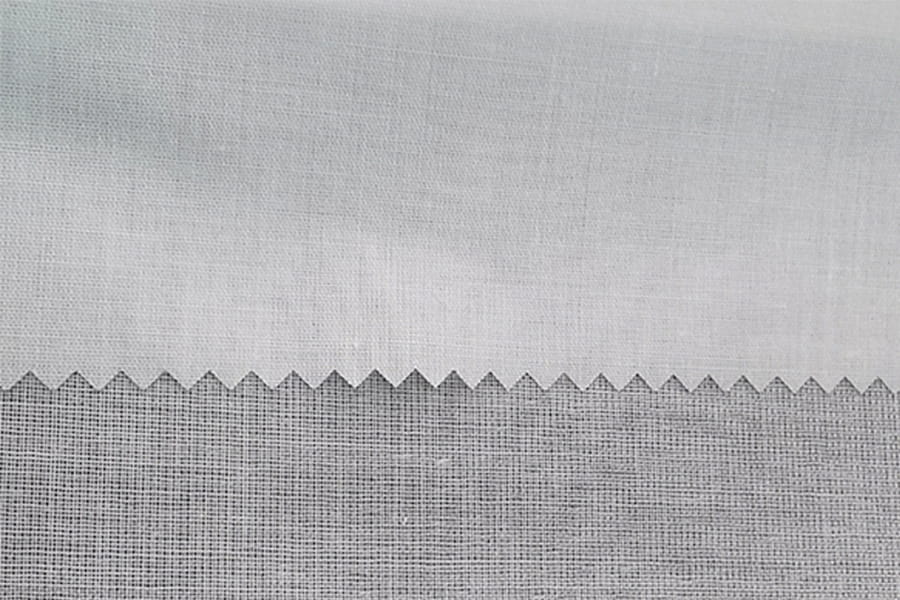Polyester knitted fabrics are becoming increasingly popular in multiple industries due to their durability, comfort and affordability. As a synthetic fiber, polyester fabrics are usually made from petroleum-derived chemicals and are widely used in sportswear, fashion, home textiles and other fields.
1. What is Polyester Knitted Fabric?
Definition and composition of polyester knitted fabric:
Polyester knitted fabric is a fabric made of polyester fiber (such as polyethylene terephthalate, abbreviated as PET) through a knitting process. Unlike woven fabrics, knitted fabrics are made by interweaving yarns into loops, which have better elasticity and stretch. Polyester fiber itself has the characteristics of high strength, wear resistance and heat resistance, so when it is used as a knitted fabric, it can create a soft and elastic fabric.
Types of knitted fabrics:
Single Jersey: Commonly used in basic clothing such as T-shirts and underwear, with a smooth surface, comfortable and breathable.
Interlock: Smoother and thicker than single jersey, suitable for making high-end clothing or home textile products.
Rib Knit: It is elastic and commonly seen in cuffs, collars and other parts, which can provide a better fit.
2. Benefits of Polyester Knitted Fabric
The advantages of polyester knitted fabric make it an ideal choice for many products. Here are some of its key benefits:
Durability
Polyester is inherently very tough and doesn’t tear or fray easily. It’s also highly resistant to UV rays and heat, which makes polyester knits last longer in both outdoor activities and everyday wear.
Breathability
Despite being a synthetic material, modern polyester knits tend to be very breathable, effectively wicking away sweat and keeping the wearer dry. This makes it very popular for sportswear and outdoor apparel.
Lightweight and Stretchability
Polyester knits are often lighter than traditional fabrics and have great stretch, allowing for comfortable movement. This is especially important for apparel like sportswear, yoga wear, sweatpants, etc.
Wrinkle Resistance
Polyester fabrics don’t wrinkle easily after wearing and washing, so they don’t need to be ironed as often, making them easy to care for. This is one of the reasons why polyester fabrics are a popular choice for everyday wear, travel apparel, and work wear.
Color Retention (Color Persistence)
Polyester fiber has strong anti-fading ability, and the color is not easy to fade even after multiple washings. This makes polyester knitted fabrics widely used in the fashion industry, especially suitable for dyeing and printing.
Affordable and Versatile (Economical and Versatile)
Polyester is a low-cost material, so polyester knitted fabrics are generally more cost-effective than natural fiber fabrics. In addition, the scope of application of polyester is very wide, and it can be used in almost all fields from sportswear to household goods.

3. Common Uses of Polyester Knitted Fabric
Polyester knitted fabrics are widely used in many fields due to their unique characteristics:
Fashion Industry (Fashion Industry)
Polyester knitted fabrics are very common in the fashion industry, especially for making casual wear, T-shirts, dresses and other styles. It is not only comfortable, but also provides excellent elasticity and adaptability, suitable for wearing needs of various body types.
Sportswear (Sportswear)
The breathability and moisture absorption and perspiration characteristics of polyester knitted fabrics make it an ideal material for sportswear and fitness clothing. It can help athletes stay dry during exercise, while providing good stretch and enhancing freedom of movement.
Home Textiles
Polyester knitted fabrics are commonly used in home textiles such as bedding (sheets, pillowcases) and curtains. Polyester is very suitable for daily use in the home due to its durability and easy cleaning.
Outdoor and Performance Gear
Polyester's water resistance and weather resistance make it widely used in outdoor gear, including raincoats, mountaineering clothing, sleeping bags, etc. It can withstand harsh environments and provide longer protection.
Medical Textiles
Polyester knitted fabrics are also widely used in the medical field, such as compression garments, sports protective gear, etc. Its softness and durability make polyester knitted fabrics ideal for making medical clothing that is worn for a long time.
4. How to Care for Polyester Knitted Fabric
In order to keep polyester knitted fabrics in the best condition, proper care methods are essential:
Washing
Warm water washing: It is best to use warm water instead of hot water to wash polyester fabrics to avoid fiber damage.
Use neutral detergent: Avoid using strong acid or strong alkaline detergents, which can extend the life of the fabric.
Wash separately: To prevent color transfer, it is best to wash dark and light colors separately.
Drying
Tumble dry at low temperature: If using a dryer, it is recommended to use a low temperature setting to prevent shrinkage and deformation of polyester fabrics.
Air drying: To maintain the shape of the fabric, it is best to lay polyester knitted fabrics flat to dry and avoid hanging them to cause deformation.
Ironing
Polyester fabrics are very wrinkle-resistant and do not need to be ironed frequently. If you do need to iron, always use a low temperature setting and avoid direct contact with the fabric.
Stain Removal
Grease stains: Scrub oil stains with a mild detergent and warm water, adding a small amount of white vinegar to help remove if necessary.
Food stains: Rinse with cold water and rub gently before washing in normal conditions.
Storage
When storing polyester knitted fabrics, avoid direct sunlight to prevent the fabric from fading. Also, avoid storing them in a humid environment to prevent mold and mildew.
5. Environmental Considerations: Sustainability of Polyester Knitted Fabric
With the improvement of environmental awareness, the production and use of polyester fibers are also facing more stringent environmental protection requirements:
Recycled Polyester
In recent years, the use of recycled polyester fibers has greatly increased. Recycled polyester usually comes from discarded plastic bottles or old clothes, which not only reduces waste but also reduces dependence on virgin petroleum resources.
Eco-friendly Practices
Many brands and manufacturers use environmentally friendly production methods such as water-less dyeing technology (waterless dyeing), which greatly reduces the consumption of water resources and reduces the emission of harmful chemicals.
Challenges of Polyester
Although the recyclability of polyester is constantly improving, it is still a non-biodegradable material. Polyester fibers may release microplastics during degradation, which will affect the environment.
6. Comparison: Polyester Knitted Fabric vs. Other Fabrics
Compared with other common fabrics, polyester knitted fabrics have obvious advantages and disadvantages.
Polyester vs. Cotton
Comfort: Cotton is generally softer than polyester and more suitable for next-to-skin wear. However, polyester is suitable for sportswear and casual wear due to its elasticity and breathability.
Durability: Polyester is generally more durable than cotton and is not easily worn.
Price: Polyester is generally cheaper than cotton and has a better value for money.
Polyester vs. Nylon
Nylon is slightly stronger than polyester and is suitable for making equipment with heavier loads. Polyester has more advantages in durability and UV resistance.
Polyester vs. Wool
Wool is naturally warm but requires more care, while polyester is relatively low-maintenance and more suitable for daily wear.
7. Future Trends in Polyester Knitted Fabric
The future of polyester knitted fabrics is full of innovations and developments:
Innovations in Fabric Technology
The development of 3D knitting technology and smart textiles (such as antibacterial fabrics and UV-resistant fabrics) may make polyester knitted fabrics more intelligent and multifunctional in the future.
Eco-conscious Consumerism
As consumer demand for sustainable products increases, polyester fabric manufacturers will further explore more environmentally friendly production technologies and recycling methods.
Fashion Design Trends
Polyester knitted fabrics will continue to be combined with fashion design, becoming an ideal choice for both comfort and fashion.

 English
English 中文简体
中文简体 русский
русский Español
Español